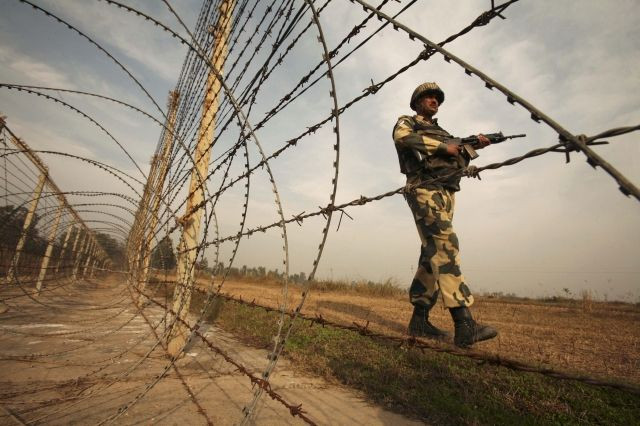Indian Officials In Kashmir Warn Residents To Prepare For Nuclear War

Officials in India-administered region of Kashmir have issued an advisory to residents to be prepared for a potential nuclear, biological or chemical war by building bomb-proof basements or bunkers and stocking up of essential supplies for two weeks.
The official advisory follows a recent flare up of tensions between India and Pakistan along the de facto Kashmir border. Two Indian soldiers and three Pakistani soldiers died in January near the Line of Control (LoC) in the worst bout of cross-border violence since both nations declared a ceasefire in November 2003.
“People should construct basements where the whole family can stay for a fortnight,” read the advisory, which was published Monday in the newspaper, Greater Kashmir.
If there is no basement, residents should construct bunkers in their front yards with toilet facilities, the notice said.
People were also asked to stock up candles, battery-operated lights, radios and non-perishable food and water.
The notice said that in the event of a nuclear attack, motorists should dive out of their cars in the direction of the flash to save themselves from being crushed by their vehicles.
“If blast wave does not arrive within five seconds of the flash you were far enough from the ground zero and initial radiation exposure will not exceed 150 rads,” the notice said.
The notice, which also included “Do’s and Don’ts” in the event of a biological chemical warfare, warned residents against allowing people contaminated by the fallout, inside their shelters.
Local officials maintained that the warning was only a part of a routine campaign to educate the public and that the information had been available on a government website for some time.
"We routinely train and educate people regarding different natural and man-made disasters and that's our duty,” Yoginder Kaul, inspector-general at the civil defense and state disaster response force told the AP.
“This advertisement too was part of such a campaign. Please, let's not read into this beyond that. Let it be clear that this is purely in the nature of educating people and not connected with anything else," he said.
Despite the ceasefire, cross-border raids are not unusual, but the recent skirmishes had prompted Indian Prime Minister Manmohan Singh to say that he would review ties with Pakistan.
Indian Army Chief Bikram Singh said at a press conference Jan. 14 that Indian troops would not hesitate to retaliate if provoked.
Terming the beheading of one of the Indian soldiers by Pakistani troops as "gruesome" and “unpardonable,” Singh said: "We reserve the right to retaliate at a time and place of our choosing."
Pakistan’s Foreign Minister Hina Rabbani Khar had accused India of “warmongering” after the Pakistan army reported Jan. 16 the killing of one of its soldiers, the fifth casualty in the border skirmish.
© Copyright IBTimes 2024. All rights reserved.





















